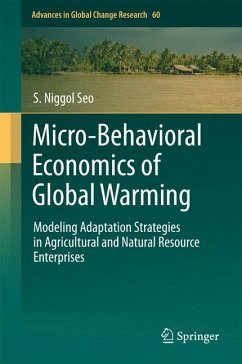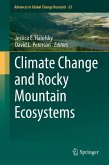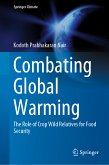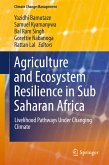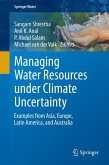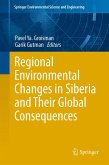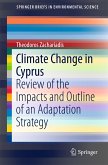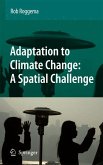This book presents a foundation for studying the micro-behavioral economics of global warming. The author develops an empirical model, named the Geographically-scaled Microeconometric model of Adapting Portfolios (G-MAP) in response to climatic changes and risks. The G-MAP model is applied to observed decisions of agricultural and natural resource enterprises in Sub-Saharan Africa and South America. The author describes the five applications of the model: the G-MAP animal species, the G-MAP agricultural systems, the G-MAP natural resource enterprises, the G-MAP climate risk, and the G-MAP public adaptations.
The micro-behavioral economics of global warming and the G-MAP models are evaluated against the three alternative modeling traditions: The first is the Agro-Economic Models (AEM) based on crop simulations of selected crops under elevated CO2 conditions; The second is a family of econometric studies of grain yield changes caused by yearly weather fluctuations; The third is the Agro-Ecological Zone (AEZ) method hinged crucially on the AEZ classifications of ecosystems.
The author offers a refreshing look at the traditional economics of global warming, unraveling a broad array of adaptation strategies adopted by managers of agricultural and natural resource enterprises in Sub-Saharan Africa and South America. The book demonstrates that the micro-behavioral economics dynamically integrates multiple disciplines in a cohesive way - including economics, psychology, climate science, ecosystem studies, agronomy, and animal science - into the decision-making framework of an individual agent. The G-MAP models provide a guide map of adaptation strategies for the humanity's enduring journey of battling global climatic changes in this century and beyond.
The micro-behavioral economics of global warming and the G-MAP models are evaluated against the three alternative modeling traditions: The first is the Agro-Economic Models (AEM) based on crop simulations of selected crops under elevated CO2 conditions; The second is a family of econometric studies of grain yield changes caused by yearly weather fluctuations; The third is the Agro-Ecological Zone (AEZ) method hinged crucially on the AEZ classifications of ecosystems.
The author offers a refreshing look at the traditional economics of global warming, unraveling a broad array of adaptation strategies adopted by managers of agricultural and natural resource enterprises in Sub-Saharan Africa and South America. The book demonstrates that the micro-behavioral economics dynamically integrates multiple disciplines in a cohesive way - including economics, psychology, climate science, ecosystem studies, agronomy, and animal science - into the decision-making framework of an individual agent. The G-MAP models provide a guide map of adaptation strategies for the humanity's enduring journey of battling global climatic changes in this century and beyond.
Dieser Download kann aus rechtlichen Gründen nur mit Rechnungsadresse in A, B, BG, CY, CZ, D, DK, EW, E, FIN, F, GR, HR, H, IRL, I, LT, L, LR, M, NL, PL, P, R, S, SLO, SK ausgeliefert werden.

